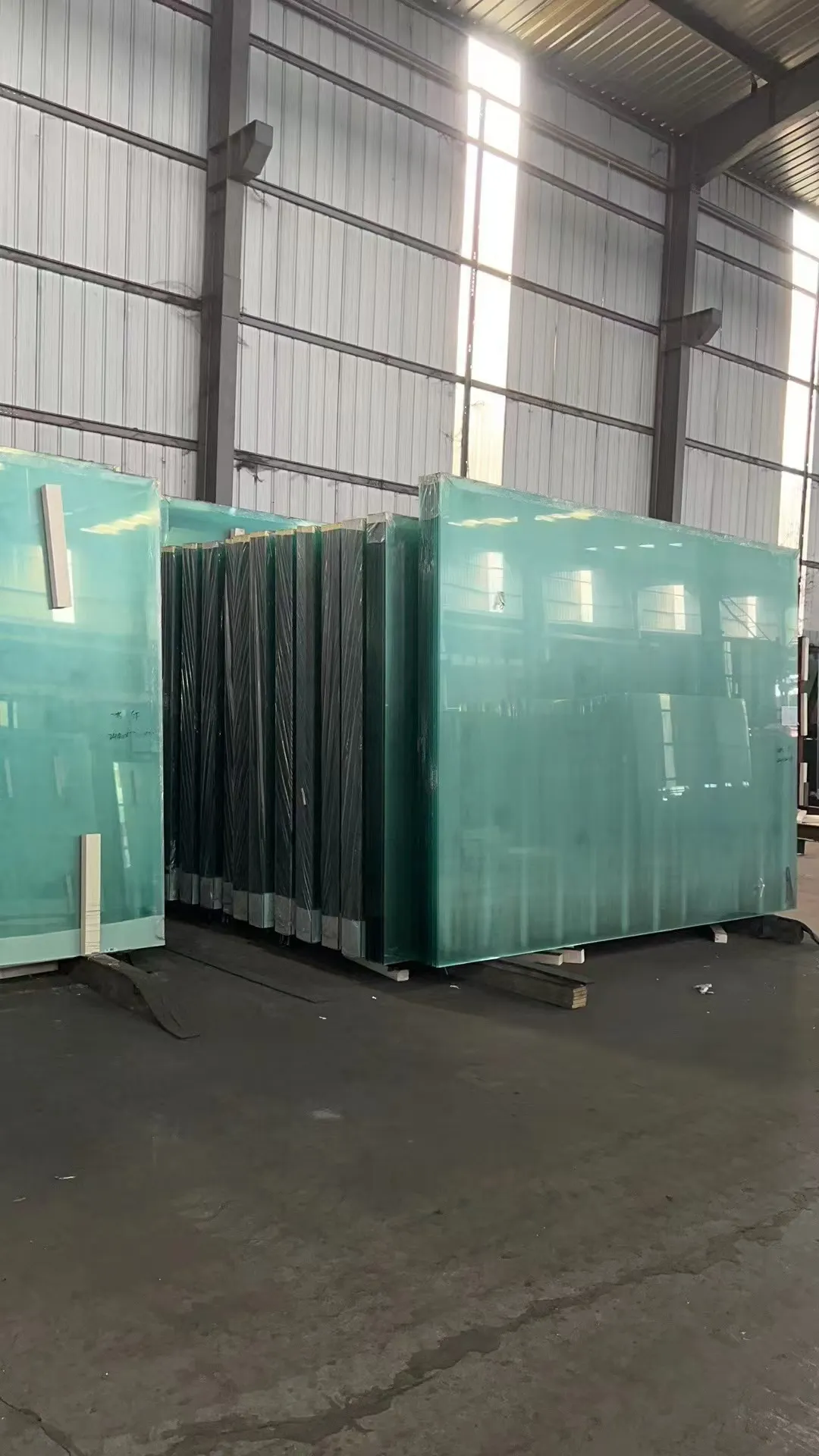Float glass, a technologically advanced material, has revolutionized the glass manufacturing industry with its remarkable properties and wide range of applications. Holding unparalleled significance in architectural and automotive industries, float glass is a product of remarkable expertise and precision in glass engineering.

Manufacturing float glass involves a carefully controlled process where molten glass flows over a bed of molten tin, resulting in a smooth, flawless sheet. This process, known as the float glass process, was innovated by Alastair Pilkington in the 1950s and has been a cornerstone of glass production ever since. This method ensures high-quality glass with uniform thickness, and it significantly enhances productivity, making it the preferred choice in the glass industry.
One of the most notable qualities of float glass is its versatility. It can be manufactured in various thicknesses, ranging from ultra-thin panels suitable for use in digital displays, to robust layers ideal for construction purposes. Furthermore, its exceptional flatness and clear, smooth surface make it a perfect base for further processing, such as coating, lamination, and toughening, which extend its functionality in diverse applications.

In architectural contexts, float glass is often preferred for its ability to provide unobstructed views while maintaining structural integrity. Its high light transmission properties make it optimal for buildings aimed at maximizing natural lighting. When used in double glazing, it significantly enhances energy efficiency by acting as an excellent insulator, providing both thermal comfort and reducing energy costs. Architects and builders favor float glass for these intrinsic benefits, which are integral to modern sustainability requirements.
float glass
In the automotive industry, float glass plays a crucial role in safety and design innovation. Laminated float glass is predominantly used in car windshields because of its high impact resistance. In addition to providing safety, its optical clarity and light weight contribute towards improving fuel efficiency and reducing vehicle weight. The material demonstrates reliability and durability, which are essential qualities demanded by automotive engineers.
Beyond construction and automotive uses, float glass is extensively utilized in the manufacture of solar panels, mirrors, and even in specialized fields like aquariums and high-tech interior design. Its adaptability and inherent quality make it suitable for digital projections and smart technologies, further cementing its status as a fundamental material in future innovations.
With continual advancements, the float glass industry is also making strides in reducing its environmental impact. Manufacturers are investing in more sustainable production methods, such as recycling and utilizing waste heat, and are exploring new techniques to decrease the carbon footprint of glass production.
In summary, float glass stands as an emblem of innovative expertise and reliable performance in the glass manufacturing industry.
Its widespread applications, coupled with its sustainable prospects, underscore its importance and multifaceted utility. As industries continue to evolve, float glass is anticipated to remain at the forefront, reflecting ongoing advancements in technology and sustainability, and maintaining its vital role across various sectors.
 Afrikaans
Afrikaans  Albanian
Albanian  Amharic
Amharic  Arabic
Arabic  Armenian
Armenian  Azerbaijani
Azerbaijani  Basque
Basque  Belarusian
Belarusian  Bengali
Bengali  Bosnian
Bosnian  Bulgarian
Bulgarian  Catalan
Catalan  Cebuano
Cebuano  Corsican
Corsican  Croatian
Croatian  Czech
Czech  Danish
Danish  Dutch
Dutch  English
English  Esperanto
Esperanto  Estonian
Estonian  Finnish
Finnish  French
French  Frisian
Frisian  Galician
Galician  Georgian
Georgian  German
German  Greek
Greek  Gujarati
Gujarati  Haitian Creole
Haitian Creole  hausa
hausa  hawaiian
hawaiian  Hebrew
Hebrew  Hindi
Hindi  Miao
Miao  Hungarian
Hungarian  Icelandic
Icelandic  igbo
igbo  Indonesian
Indonesian  irish
irish  Italian
Italian  Japanese
Japanese  Javanese
Javanese  Kannada
Kannada  kazakh
kazakh  Khmer
Khmer  Rwandese
Rwandese  Korean
Korean  Kurdish
Kurdish  Kyrgyz
Kyrgyz  Lao
Lao  Latin
Latin  Latvian
Latvian  Lithuanian
Lithuanian  Luxembourgish
Luxembourgish  Macedonian
Macedonian  Malgashi
Malgashi  Malay
Malay  Malayalam
Malayalam  Maltese
Maltese  Maori
Maori  Marathi
Marathi  Mongolian
Mongolian  Myanmar
Myanmar  Nepali
Nepali  Norwegian
Norwegian  Norwegian
Norwegian  Occitan
Occitan  Pashto
Pashto  Persian
Persian  Polish
Polish  Portuguese
Portuguese  Punjabi
Punjabi  Romanian
Romanian  Russian
Russian  Samoan
Samoan  Scottish Gaelic
Scottish Gaelic  Serbian
Serbian  Sesotho
Sesotho  Shona
Shona  Sindhi
Sindhi  Sinhala
Sinhala  Slovak
Slovak  Slovenian
Slovenian  Somali
Somali  Spanish
Spanish  Sundanese
Sundanese  Swahili
Swahili  Swedish
Swedish  Tagalog
Tagalog  Tajik
Tajik  Tamil
Tamil  Tatar
Tatar  Telugu
Telugu  Thai
Thai  Turkish
Turkish  Turkmen
Turkmen  Ukrainian
Ukrainian  Urdu
Urdu  Uighur
Uighur  Uzbek
Uzbek  Vietnamese
Vietnamese  Welsh
Welsh  Bantu
Bantu  Yiddish
Yiddish  Yoruba
Yoruba  Zulu
Zulu 


